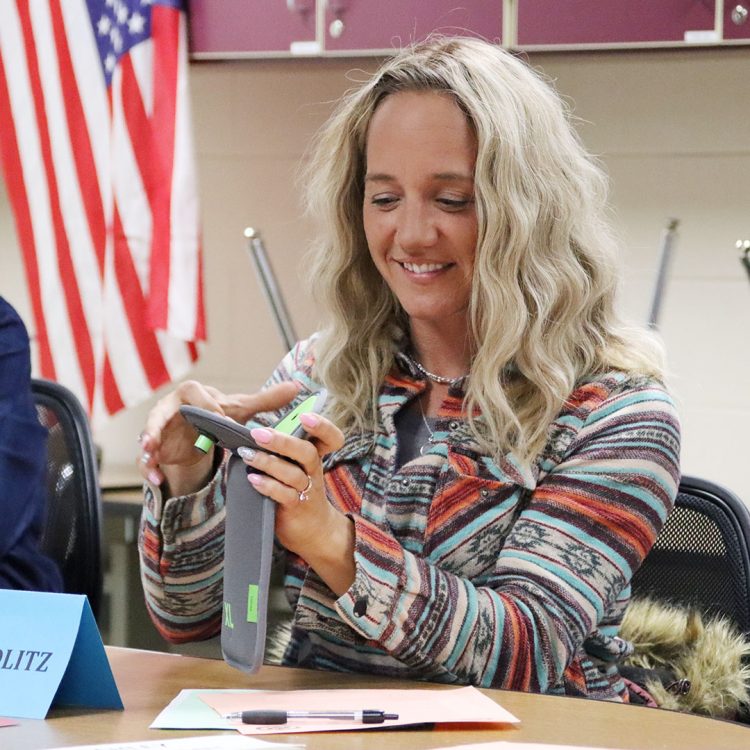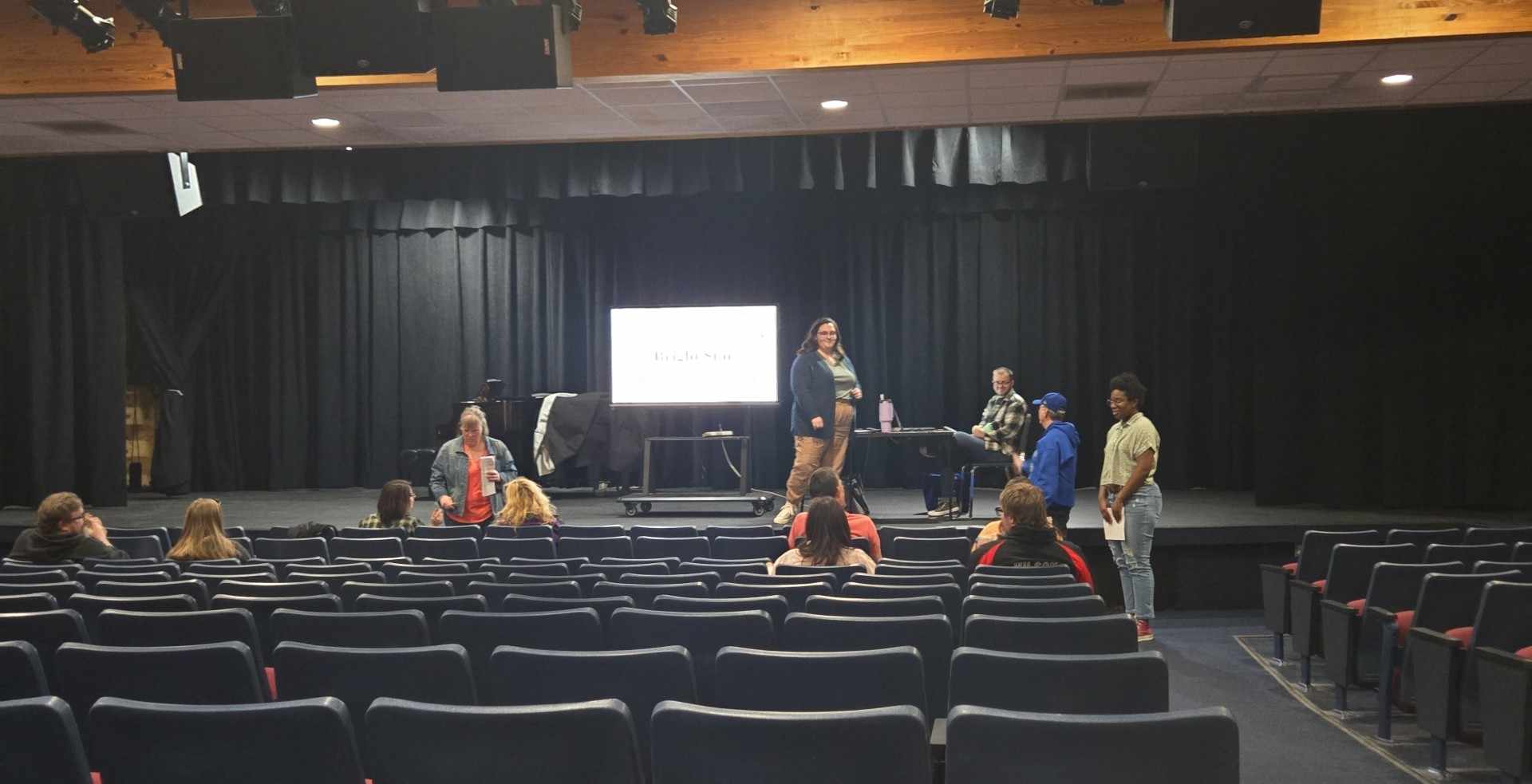Cornell School Board//Annual Meeting - Students better get used to no cell phones


Stephanie Seidlitz, Cornell School Board treasurer, was at first puzzled as to how a simple pouch would keep students from using their cell phones during the school day, but quickly figured it out. If approved, a policy will take effect after the next meeting, banning electronic devices and requiring the phones to be stored in the bags, or left at home. Photo by Ginna Young
By Ginna Young
You’d probably be hard put to find a teacher or staff member who doesn’t get exasperated with the amount of cell phone use in schools, as students are addicted to electronic devices. Well, Cornell may not have that problem, as explained at the regular meeting Oct. 28.
In a new policy’s first reading, the board of education heard what is planned – if it passes – for student cell phone use. Based on a high school parent survey, 64 percent were in favor of banning cell phones during school hours, while 13 out of 14 staff agreed they’d like a cell phone ban.
While the district could simply state that no cell phones are allowed in the school, administrators know that kids would still sneak them in, so they’re looking into special pouch bags from YONDR. The bag provides a place for kids to still keep their phone near them, as they are somewhat of a “comfort item,” while unable to access the phone.
The pouch works on the premise of magnets. Once the bag is “activated” and closed, the electronic device is sealed in there until the student can unlock it, through a disc-like object that would hang in the commons by the door. A magnet on the disc unlocks the bag, when hit on the button.
“I just think this is crazy that this is what our world has come to,” said board treasurer Stephanie Seidlitz.
“We’re not the only school that’s looking into this,” said board clerk Eileen Sikora.
The ban includes smartwatches and earbuds, with exceptions taken into account for emergency responders’ devices and those with blood sugar monitors that are linked to their phone. To purchase a bag, it would about $32 or a child can simply leave their phone at home.
“There’s no reason to buy a bag, if you don’t have a phone,” said superintendent Paul Schley.
The policy will be up for approval at the November meeting, and likely would take effect after Christmas break. It was agreed something is needed, as youth are dependent on their devices and losing one-onone contact abilities.
“I think it’ll be a good eye-opener for everybody,” said Sikora.
Also discussed and up for approval at the next meeting, are ending the co-oped baseball, softball and track teams with Lake Holcombe. It was decided that Cornell will continue the golf co-op, as well as the wrestling co-op through Gilman.
If the board decides to allow the contracts to expire, there are no penalties from the WIAA, as long as the contract is not withdrawn from and simply is not renewed.
“It’s not uncommon for co-ops to dissolve and go back up again with another school,” said middle/high school principal Craig Braaten.
Board vice president Jamie Close asked if Braaten thought they would lose the softball and volleyball coaches, if the contracts dissolved, as they are a husband and wife team, who both teach at Lake Holcombe.
“They’re super people,” said Close.
Braaten says he thinks if they approached the softball coach soon enough, they could persuade him to continue coaching, while it shouldn’t affect volleyball, as she has coached for years, without the benefit of a co-op.
Board president Lyle Briggs questioned if Cornell has enough students to run their own spring sports programs, which Braaten believes is the case. Allison Spegal, assistant softball coach, says it’s probably all a numbers game, as to whether a co-op should stay in place.
‘When it comes down to it, yes, we only get a few girls from Holcombe, but they help fill those gaps, where needed,” she said.
Briggs was also concerned about the track program.
“It used to be pretty successful,” he said. Even with a co-op, the program only had a handful from each school for track, but regardless, the matter will be decided at the next meeting, giving the board time to hear public feedback.
However, members did agree on the hire of CESA 10, to manage the facility project for the district, as they liked that the company is local and has Cornell’s interests at the forefront.
“I think with CESA 10, you’re going to get a lot more local contractors, than you are from anyone in the cities,” said board member Greg Baker.
The board also passed a resolution in support of permanent funding of IDEA, which covers the cost of 40 percent of special education.
“It probably won’t go very far, but at least we’re taking a stance on it,” said Schley.
Also approved, was the hire of assistant girls basketball coach Sara Abbott; and middle school girls basketball coach Nicole Filla.
Prior to the regular meeting, the annual school meeting was held, where the tax levy was set at $1,584,781, with a mill rate of 5.03, the lowest on record for the district since the mid-1990s.
“I don’t anticipate we’ll see it that low again next year,” said Schley.
Schley also mentioned in the financial report, that the district had to levy $26,616 extra, because that amount is how much the district had to pay for a handful of unnamed students to attend a private voucher school.
“Yes, you as a taxpayer are paying for private schools,” said Schley.



